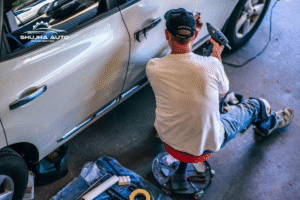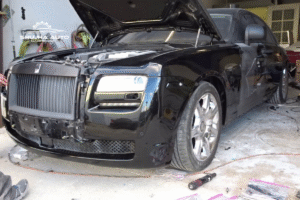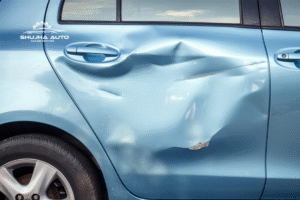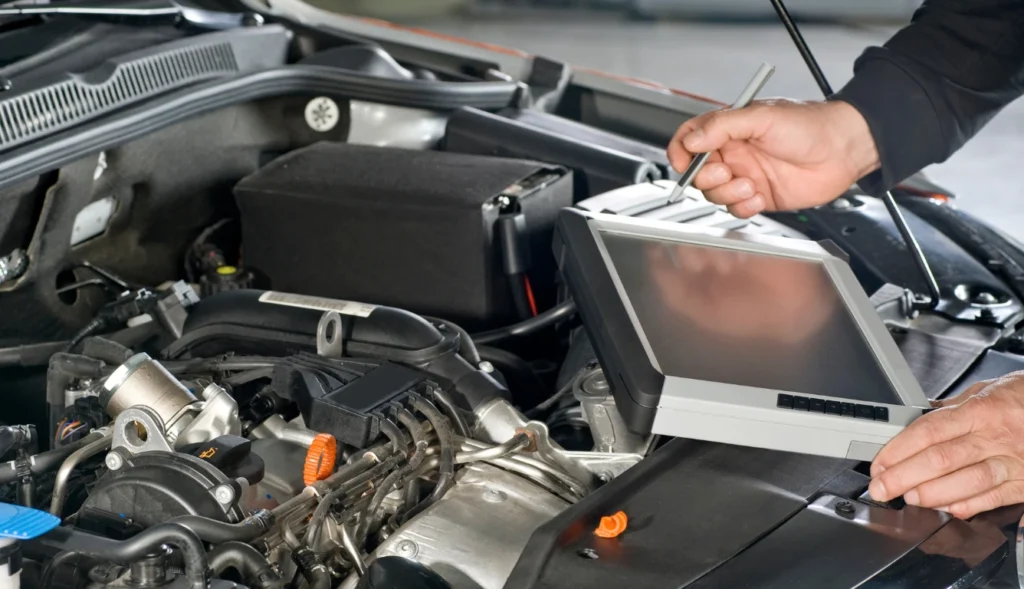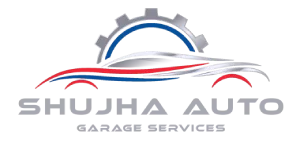Modern cars are basically computers on wheels. At the heart of this tech-savvy machine is the car’s computer, also known as the Engine Control Unit (ECU). It controls everything from how the engine runs to fuel efficiency and even emissions. So, when the ECU goes bad, it can mess with a lot of different things in your vehicle. But how can you tell if your car’s computer is in trouble? In this article, we’ll walk through the common signs of a bad car computer and their causes to help you understand what’s going on under the hood.
What is a Car Computer (ECU)?
Before diving into the signs of a bad car computer and their causes, let’s first explain what it actually does. The ECU is like the brain of your car. It gathers data from various sensors throughout the vehicle, then uses this info to control important systems like the engine, transmission, and even the air conditioning.
Most modern cars can’t function properly without the ECU because it keeps things running smoothly by adjusting fuel mixtures, air intake, and engine timing. If the ECU malfunctions, it can lead to serious issues with performance, fuel economy, and safety.
Signs of a Bad Car Computer
1. Check Engine Light Stays On
One of the first and most obvious signs of a bad car computer is the check engine light staying on. If the ECU detects a problem, it triggers this light. While many things can trigger the check engine light, a persistent light with no other apparent issues could point directly to the ECU.
The reason for this is simple: the ECU monitors all sorts of engine components. When it starts failing, it may incorrectly report an issue, or worse, fail to report one at all. If your check engine light won’t turn off despite a mechanic’s inspection, you might be looking at an ECU problem.
2. Engine Performance Issues
Your car’s performance may take a hit if the ECU goes bad. For example, the engine may stutter, stall, or even fail to start at all. This happens because the ECU regulates how much fuel and air the engine receives, and a failing computer can miscalculate, leading to misfires or a sluggish response.
In some cases, you may notice reduced fuel efficiency or strange engine noises. The engine might hesitate or fail to accelerate properly. All these are common signs of a bad car computer and their causes, which can include everything from faulty wiring to an outdated ECU.
Causes of a Bad Car Computer
1. Moisture Damage
Believe it or not, moisture can be a big enemy of car electronics, including the ECU. If water or excessive moisture gets into the car’s computer system, it can short-circuit the internal components. This is especially true for cars parked outside during rainy seasons or in humid climates.
The moisture can cause corrosion inside the ECU, leading to poor performance or total failure. If you live in a rainy or humid area, it’s crucial to keep your vehicle protected from the elements to prevent such damage.
2. Wiring Issues
Another common cause of a bad ECU is faulty wiring. The ECU relies on a network of wires to communicate with different parts of the vehicle. When there’s a problem with these wires—whether due to age, damage, or wear—the ECU might not receive the necessary signals.
For example, if there’s a loose connection or a frayed wire, it could disrupt the flow of information, causing the ECU to malfunction. Regular vehicle maintenance, including checking electrical systems, can help catch these problems before they become severe.
Symptoms of a Bad ECU and When to Seek Help
1. Electrical Problems Throughout the Car
An unreliable ECU doesn’t just affect the engine—it can cause electrical issues throughout the car. This could include problems with the dashboard lights, air conditioning, or even power windows and locks. These are all systems that the ECU helps manage, so if you notice electrical gremlins popping up, your ECU could be to blame.
Another telltale sign is flickering headlights or unusual behavior in your car’s electronic systems. If your lights dim or your radio cuts in and out, the ECU may be struggling to keep things running smoothly.
2. Car Won’t Start
If your car cranks but won’t start, you could be dealing with a bad ECU. Since the ECU controls critical engine functions, like fuel injection and ignition timing, a bad computer can prevent the engine from starting. You might hear the engine trying to turn over, but without the ECU functioning correctly, it simply won’t fire up.
In extreme cases, the car may refuse to crank at all. If you’re experiencing frequent starting issues, it’s worth having the ECU checked by a professional.
At Shujha Auto Garage, we specialize in ECU diagnostics and car programming. Our expert team can troubleshoot and repair any issues with your car’s computer. Stop by our garage for quick and reliable service!
How to Diagnose a Bad ECU
1. Diagnostic Testing
The easiest way to diagnose a bad car computer is through diagnostic testing. A mechanic will connect a diagnostic tool to your car’s onboard system, which will read any trouble codes stored in the ECU. These codes can pinpoint where the issue lies and whether the ECU is the culprit.
If your mechanic confirms an ECU issue, it’s often cheaper to replace it rather than try to repair it, though some specialists can refurbish ECUs. Remember, a professional diagnosis is key to ensuring the problem is indeed the ECU and not a related system.
2. Visual Inspection
While diagnostic testing is the best method, a visual inspection can also reveal problems. Look for any signs of corrosion or damage around the ECU or its connectors. Any burnt or frayed wires are a red flag, as is visible moisture damage.
If you feel comfortable opening your vehicle’s hood and checking for obvious signs of wear or tear, it might give you a head start before taking your car to the shop.
For reliable ECU programming and diagnostics, contact Shujha Auto Garage, where we ensure your vehicle runs as smoothly as possible. Don’t let a bad ECU ruin your car’s performance!
Solutions and Preventative Measures
1. Keep Your Car Dry
Moisture is one of the leading causes of ECU failure, so keeping your vehicle as dry as possible is essential. If you live in a wet or humid climate, try to park your car in a garage or use a waterproof cover. Regularly check for leaks inside your vehicle, especially around the ECU’s location.
If moisture does find its way into your vehicle, have the electrical systems checked out as soon as possible to prevent lasting damage to the ECU or other critical components.
2. Regular Maintenance and Inspections
One of the best ways to avoid ECU problems is through regular vehicle maintenance. Have your mechanic check the ECU and its surrounding components during routine services. Catching a small wiring issue early can save you from a costly repair down the road.
Also, make sure your mechanic updates your ECU software when needed, as an outdated program can sometimes cause problems with engine performance or fuel efficiency. Staying on top of these updates ensures your car’s computer operates at peak performance.
When to Replace Your ECU
1. After Severe Damage
There are times when ECU repair simply isn’t possible. If the unit has sustained severe damage, such as extensive moisture exposure or significant wiring problems, replacement may be the only option. When this happens, it’s important to have an experienced mechanic handle the replacement to ensure your car’s new computer is properly installed and programmed.
If you’re facing costly repairs or your car’s performance is declining due to a faulty ECU, consider replacing it. The good news is that once a new ECU is installed, your vehicle should operate as good as new.
2. If Repairs Are Too Expensive
While many ECU problems can be repaired, sometimes the cost of repairs outweighs the benefits. If the ECU has been damaged beyond repair or if it’s an older unit that’s prone to failure, a replacement might be more cost-effective in the long run.
Replacing your car’s computer may seem like a big job, but in most cases, it’s a straightforward process that can get your car back on the road quickly.
Conclusion
Understanding the signs of a bad car computer and their causes can save you a lot of trouble in the long run. Whether it’s strange engine behavior, electrical issues, or that dreaded check engine light, catching ECU problems early can prevent more severe damage to your vehicle.
If you suspect your ECU might be on the fritz, it’s always best to have it inspected by a professional. At Shujha Auto Garage, we specialize in ECU diagnostics and programming to keep your car running smoothly. Stop by today for expert advice and top-notch service.

